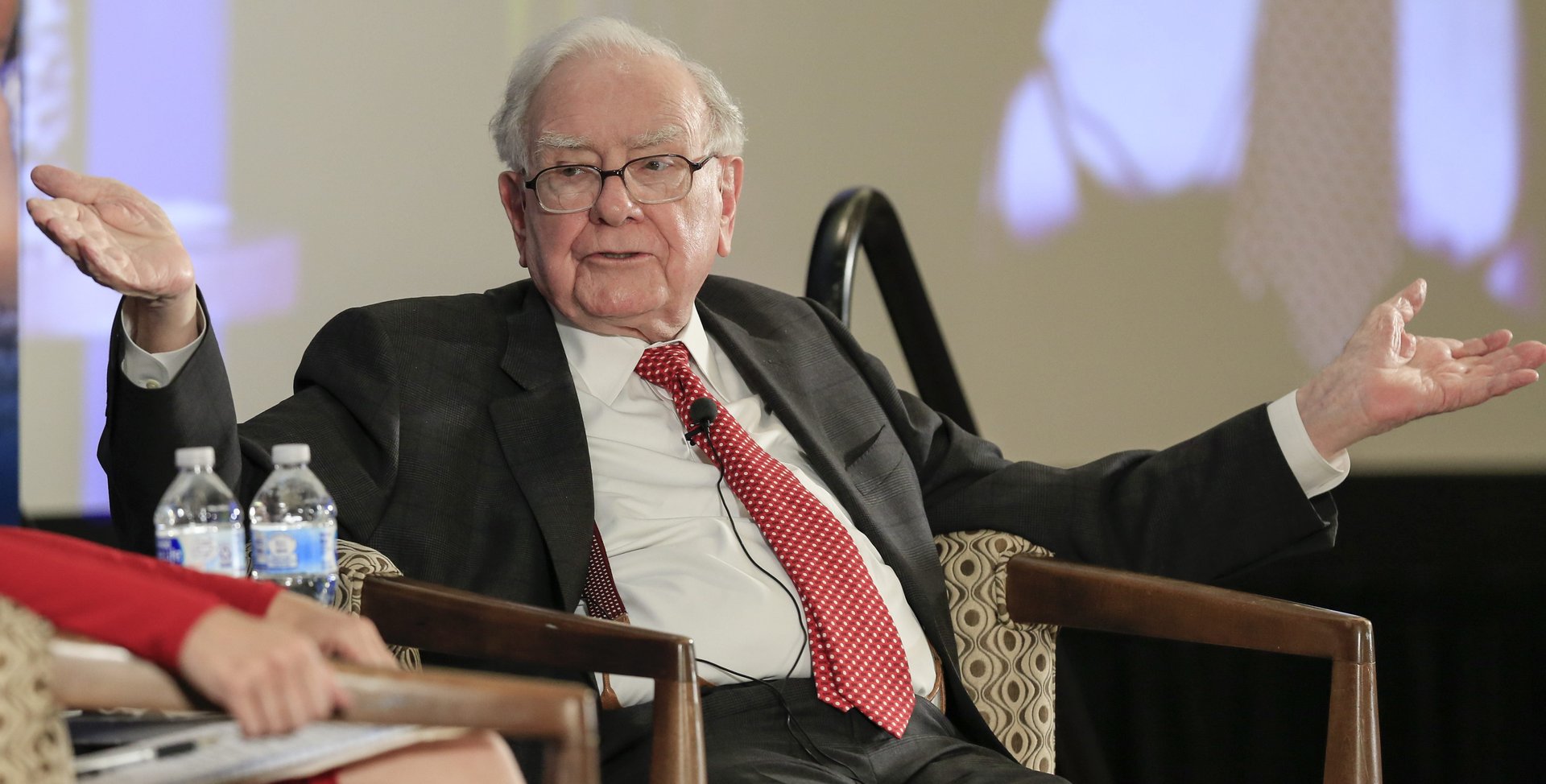Warren Buffett loves Apple because consumers are psychologically attached to the iPhone
Warren Buffett told CNBC that Berkshire Hathaway has purchased more shares of Apple than any other stock over the past year. It reflects the famed investor’s belief in Apple’s value as a consumer brand, not unlike Coca-Cola, Berkshire’s fourth-largest US stock holding. (Apple is now the second largest.)


Warren Buffett told CNBC that Berkshire Hathaway has purchased more shares of Apple than any other stock over the past year. It reflects the famed investor’s belief in Apple’s value as a consumer brand, not unlike Coca-Cola, Berkshire’s fourth-largest US stock holding. (Apple is now the second largest.)
Buffett’s take on Apple is striking because it’s seemingly not rooted directly in a view of Apple’s technology, manufacturing, or design prowess. The Berkshire CEO didn’t mention the iPhone X’s cameras or Apple’s application of voice recognition, cloud computing, or artificial intelligence.
It’s more that Buffett likes how reluctant consumers are to switch away from the iPhone to use a rival smartphone.
“Apple has an extraordinary consumer franchise,” he told CNBC. “I see how strong that ecosystem is, to an extraordinary degree. … You are very, very, very locked in, at least psychologically and mentally, to the product you are using. [The iPhone] is a very sticky product.”
That attachment isn’t showing signs of loosening: A survey from Morgan Stanley published in May pegged the iPhone’s retention rate at 92%, compared to 77% for Samsung phones, and up from 86% the previous year.
Buffett’s enthusiasm for consumers’ psychological attachment to the iPhone seems to be more about their affinity for the brand over rivals, not the smartphone addiction that some big Apple investors have expressed concerns about.
That analysis of Apple’s consumer strength is in line with Buffett’s traditional view of the importance of economic moats. Here’s how he described that to Fortune in 1999:
The key to investing is not assessing how much an industry is going to affect society, or how much it will grow, but rather determining the competitive advantage of any given company and, above all, the durability of that advantage. The products or services that have wide, sustainable moats around them are the ones that deliver rewards to investors.
Berkshire began buying Apple shares in 2016. Its bet, valued at over $28 billion as of the Feb. 24 release of Berkshire’s annual letter, is at the moment very much a bet on a single consumer product, the iPhone. Apple said the iPhone accounted for 70% of its revenue in the last quarter of 2017.
Scott Galloway, a professor at New York University and author of The Four, has argued that any mental lock-in is connected to the iPhone’s sex appeal.
“The No. 1 signal of wealth, the No. 1 signal of power, the No. 1 signal of your likelihood of a random sexual encounter in a greater selection set among potential mates is the iPhone,” Galloway told Recode last year. “An iPhone is saying to the opposite sex, or a potential mate, ‘I have good genes. You should mate with me.’”
There are risks to hanging a bet on a single consumer product. Samsung lost billions of dollars in potential profits and suffered a deep loss of consumer trust when the batteries of some of its Galaxy Note 7 phones exploded in 2016. Smartphones are different from other consumer products—like, say, carbonated drinks—in their technical complexity, and consumer fickleness about features like cameras and screens.
And Buffett has some familiarity with what happens when a tech company’s offerings aren’t as sticky as they seem. While Berkshire has been buying Apple, it’s been selling its shares in IBM, bought in the hope of a turnaround that didn’t materialize as he had hoped.